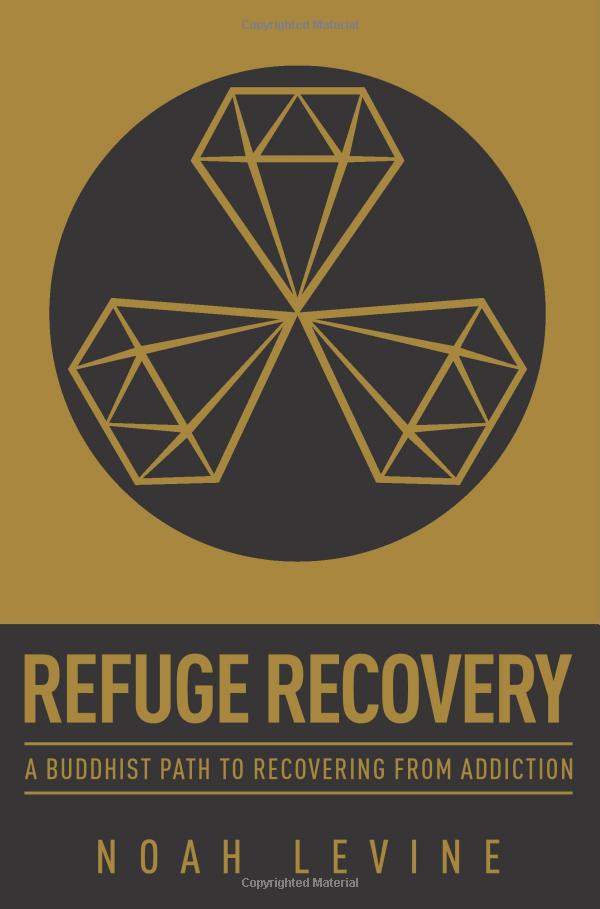The practise of spending time in natural environments is called nature therapy, ecotherapy, or green therapy, and it is used as a form of holistic treatment for substance abuse disorders. When it comes to mental, emotional, and spiritual well-being, the environment can be just as important as exposure to natural elements, which is why the field of nature therapy exists.
Hereditary factors, trauma, and mental health problems can all play a role in the development of an addiction. Because addiction can affect a person on a physical, emotional, and spiritual level, it can be challenging to treat with conventional methods alone. Addressing these factors and fostering general well-being, as is the case with nature therapy, can provide a novel and effective approach to addiction recovery.
Spending time in natural environments has been shown to have numerous health benefits. Incorporating time spent in nature into one’s daily routine has been shown to have positive effects on mental and physical health. By reducing inflammation, lowering blood pressure, and enhancing cardiovascular health, it can also improve physical health.
Nature therapy is a powerful method for relieving stress and decreasing the likelihood of relapse for those recovering from substance abuse. Those who spend time in natural settings report higher levels of calm and well-being, likely due to the increased sense of connection, grounding, and centeredness they experience there. Experiencing nature as a form of therapy can be a healthy and constructive way to deal with negative emotions.
There are a variety of ways that hiking, camping, gardening, and even working with animals can be incorporated into the treatment of addiction. Some facilities for helping people overcome their addictions provide what’s called “wilderness therapy,” which involves staying outside for long periods of time with the intention of fostering personal growth and healing. Some organisations focus on providing participants with a sense of purpose and belonging through activities like gardening or animal therapy.
Spending time in nature can provide individuals with a sense of purpose and direction beyond addiction, which can be especially important during the early stages of recovery. It can also help individuals build a strong support system and develop healthy coping mechanisms for managing stress and difficult emotions.
Nature therapy can provide a powerful and effective approach to addiction recovery by promoting overall well-being and addressing the underlying factors that contribute to addiction. By incorporating nature therapy into addiction treatment, individuals can improve their physical, emotional, and spiritual health and enjoy a more fulfilling and satisfying life in sobriety.
- Reducing stress and anxiety: Nature therapy has been shown to reduce stress and anxiety levels, leading to improved overall psychological health.
- Improving mood: Spending time in nature has been linked to improvements in mood, including reduced symptoms of depression and increased feelings of happiness.
- Increasing self-awareness: Being in natural environments can help individuals reflect on their thoughts and feelings, leading to increased self-awareness and insight.
- Enhancing mindfulness: Nature therapy can promote mindfulness by encouraging individuals to focus on the present moment and be fully present in their surroundings.
- Fostering creativity: Being surrounded by natural beauty can stimulate creativity and enhance problem-solving skills.
- Boosting self-esteem: Nature therapy can increase feelings of self-worth and confidence, leading to improved psychological well-being.
- Improving sleep: Being in nature has been linked to improved sleep quality, which can lead to improved psychological health.
- Providing a sense of purpose: Connecting with nature can provide individuals with a sense of purpose and meaning, leading to improved overall psychological health.
- Promoting social connections: Nature therapy can be a social activity, which can help individuals build supportive relationships and reduce feelings of isolation.
- Providing a sense of calm: Being in natural environments can promote feelings of calm and relaxation, leading to improved overall psychological health.
Nature therapy may sound a bit wishy washy but in reality nature therapy is actually evidence-based, with numerous studies supporting its effectiveness for improving psychological well-being.
Research has shown that spending time in nature can lead to reduced stress, anxiety, and depression, improved mood and self-esteem, and enhanced cognitive function.
Furthermore, nature therapy is increasingly being recognised as a valuable tool in the arsenal against substance abuse. Spending time in natural settings has been shown to help people deal with stress and decrease their likelihood of relapsing.
Nature therapy in Johannesburg
Johannesburg is a great place for nature therapy in addiction recovery for several reasons. Johannesburg is home to an abundance of natural beauty, including mountains, beaches, and forests, which provide a variety of environments for individuals to connect with nature. Johannesburg’s mild climate allows for year-round access to natural environments, providing individuals with consistent opportunities for nature therapy.
Johannesburg has a thriving outdoor recreation culture, with a wide range of activities available, including hiking, surfing, and wildlife safaris, which can enhance the benefits of nature therapy by promoting physical activity and social connections.
Johannesburg has a number of addiction treatment facilities that incorporate nature therapy into their programs, such as Recovery Direct, which is located in a natural setting and provides a range of outdoor activities as part of its holistic approach to addiction treatment. The combination of natural beauty, outdoor recreation opportunities, and addiction treatment facilities makes Johannesburg an ideal location for nature therapy in addiction recovery.
Some of the most popular nature attractions in Johannesburg that can be ideal for nature therapy:
Johannesburg, being a bustling urban city, may not offer as many natural attractions as some other areas. However, there are still a few nature spots in and around Johannesburg that can provide a peaceful environment for nature therapy. Here are some popular nature attractions in Johannesburg:
- Johannesburg Botanical Garden: Located in Emmarentia, this 125-hectare garden offers beautiful lawns, flower beds, and walking trails. It has several themed gardens, including a Shakespeare garden and a rose garden, making it a serene spot to connect with nature.
- Walter Sisulu National Botanical Garden: Situated in Roodepoort, this garden is known for its scenic beauty. It features walking trails, picnic areas, and a stunning waterfall, along with various bird species, including the endangered Black Eagle.
- Melville Koppies Nature Reserve: This nature reserve is a Johannesburg Heritage site and provides a natural escape in the middle of the city. It offers walking trails through grasslands, rocky ridges, and indigenous vegetation, showcasing the city’s geological history.
- Klipriviersberg Nature Reserve: Located in the south of Johannesburg, this reserve is one of the largest urban nature reserves in the world. It offers hiking trails, picnic spots, and a chance to spot various animal species, including zebra, springbok, and wildebeest.
- Johannesburg Zoo: While primarily a zoo, it features expansive grounds and beautiful gardens where visitors can relax and enjoy nature. The zoo also has a dedicated section called the Zoo Lake, which offers walking trails and a lake for boating.
- Suikerbosrand Nature Reserve: Although a bit further from Johannesburg (approximately an hour’s drive), this reserve is worth mentioning. It offers hiking trails, picnic areas, and stunning views of grassy plains, hills, and diverse flora and fauna.
These nature attractions provide opportunities to unwind, connect with nature, and find tranquility amidst the bustling city life of Johannesburg.
However, there are some common environments of greenery that have been found to be particularly beneficial for nature therapy:
- Forests: Forests are natural environments that are rich in biodiversity, and they offer a wide range of sensory experiences, such as the sound of rustling leaves, the scent of pine, and the sight of sunlight filtering through the trees. Spending time in a forest has been shown to reduce stress and improve mood.
- Rivers: Rivers provide a soothing and calming environment, with the sound of water flowing and the sight of rippling currents. They offer opportunities for activities such as swimming, kayaking, and fishing, which can be therapeutic and relaxing.
- Gardens: Gardens can be created in many different sizes and styles, from small city plots to large country estates. They offer a space for quiet contemplation and relaxation, and the act of gardening can be therapeutic in itself.
- Parks: Urban parks provide a green space in the midst of the city, with opportunities for walking, running, and relaxing. They often have trees and flowers, as well as benches and other seating areas, providing a peaceful environment for nature therapy.
Nature can be appreciated without visiting Johannesburg. Nature therapy is most effective in settings that feature abundant vegetation, water, and wildlife. The optimal setting for a person is one that caters to their specific likes and needs.












